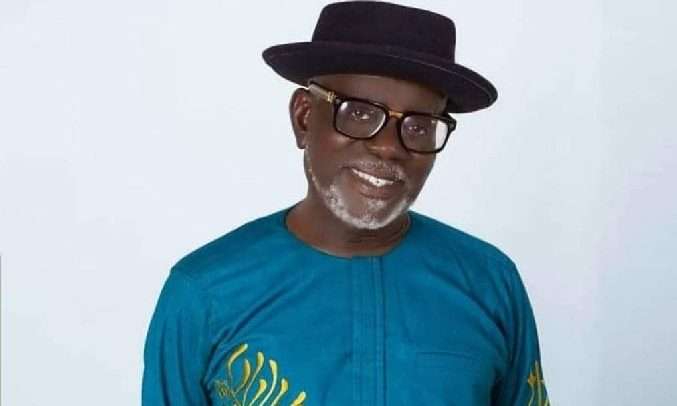In an era where creativity is at the forefront of economic development and cultural expression, the role of government creatives has never been more critical.
As nations strive to harness the creative sector’s potential, including artists, designers, and innovators in governmental positions offers a unique opportunity to infuse policies with fresh perspectives and innovative solutions.
Veteran actor Fred Amugi has called on creatives who have been appointed to various positions in government to make the creative sector more productive.
The actor admonished that plans are put in place to project Ghana’s creative sector. According to him, these leaders should ensure that they address all the issues they complained about when they were not in government.
“What they used to complain about, this is the time to push and let it happen. Gone were the days when getting even one reporter to talk about a pending play was a problem.”
Fred Amugi
He also highlighted that, just like the developed countries, Ghana’s creative sector could be on the global frontlines if similar strategies are adopted. “The so-called concepts that we’re talking about are the very things that have made America, India, and Nigeria what it is today because the man on the stage, the man before the camera is telling a story of nature,” he added.
The actor further urged creatives to collectively help build the dream of achieving a better place for the sector.

Creatives bring a distinctive set of skills and experiences that significantly enhance governmental processes and outcomes. Their ability to think outside the box, challenge conventional wisdom, and engage diverse communities leads to more inclusive and effective policies.
By incorporating the insights of creatives, governments better address the challenges facing the creative sector, such as funding disparities, access to resources, and the need for infrastructure that supports artistic endeavors.
Moreover, creatives in government serve as advocates for the arts, promoting the value of creativity in education, economic development, and social cohesion.
By prioritizing the arts, governments foster a vibrant cultural landscape that attracts tourism, enhances community identity, and stimulates local economies.
For instance, cities like Austin, Texas, and Berlin, Germany, have successfully leveraged their creative sectors to become global cultural hubs, demonstrating the potential impact of strategic governmental support.
Role of Government Creatives

Government creatives—those individuals in positions of power who have a background or interest in the arts—are uniquely positioned to bridge the gap between the creative community and the government.
They advocate for policies that prioritize the arts, allocate funding, and create programs that support emerging talents. By leveraging their understanding of both the creative landscape and governmental processes, these individuals craft initiatives that foster innovation and inclusivity within the sector.
Creatives in government influence policy development by advocating for laws and regulations that protect intellectual property rights, support fair compensation for artists, and promote cultural exchange.
For instance, implementing tax incentives for film production attracts international filmmakers to Ghana, thereby boosting local economies and creating jobs.
Moreover, policies that promote education in the arts cultivate a new generation of creatives equipped with the skills necessary to thrive in a competitive global market.
Creatives in government also facilitate collaborations between artists, businesses, and educational institutions. By fostering networks that connect creatives with industry leaders, they help to cultivate mentorship opportunities, workshops, and collaborative projects that enhance skills and promote cultural exchange.

Such initiatives not only enrich the local creative community but also elevate Ghana’s profile on the global stage.
A robust creative sector has far-reaching implications for Ghana’s economy and society. It drives tourism, creates jobs, and enhances the nation’s cultural diplomacy.
Moreover, by empowering creatives, the government cultivates a sense of national pride and identity. When artists are supported and celebrated, they become ambassadors of Ghanaian culture, sharing their stories and traditions with the world.
The potential for Ghana’s creative sector is immense, but it requires the commitment and vision of government creatives to unlock it. By advocating for supportive policies, securing funding, and facilitating collaborations, these individuals make a lasting impact on the creative landscape of Ghana.
As the country continues to navigate the complexities of globalization and technological advancement, investing in creativity will not only enrich the cultural fabric of the nation but also pave the way for sustainable economic development.
The time is now for government creatives to step forward and lead the charge in transforming Ghana’s creative sector into a beacon of innovation and inspiration.
READ ALSO: Franklin Cudjoe Warns Ghana Is ‘Playing with Hell Fire’























